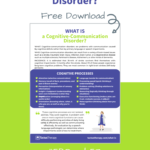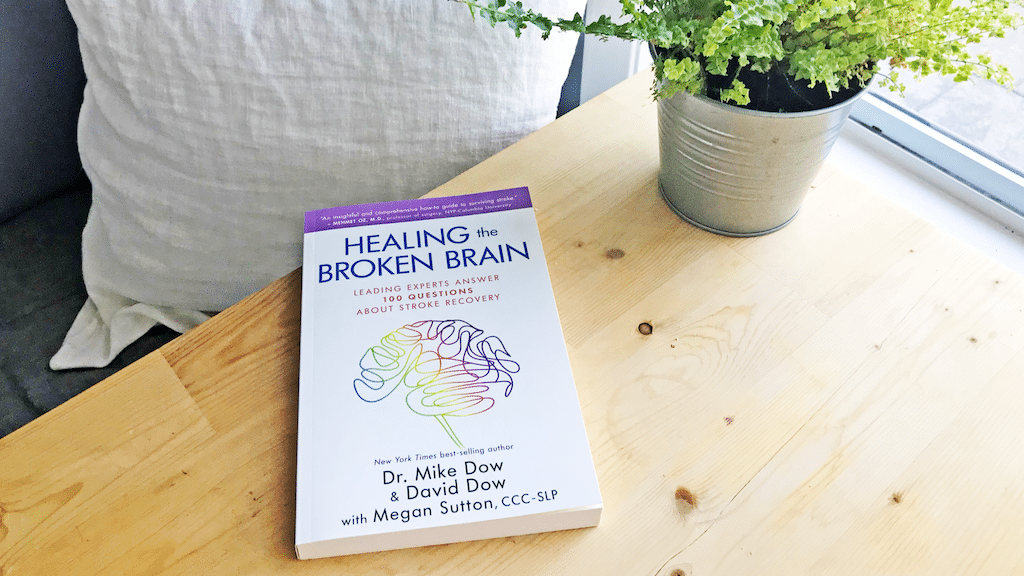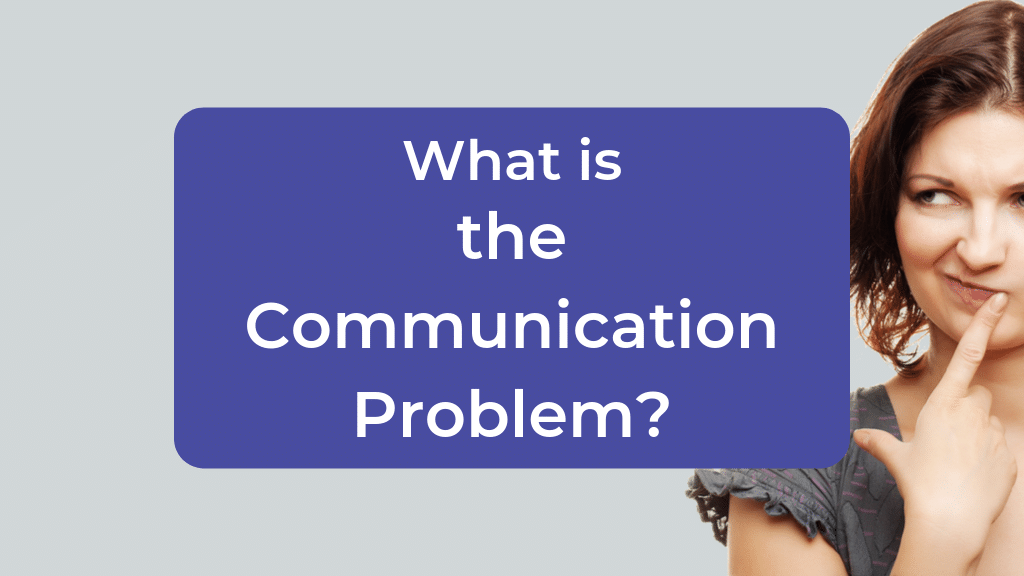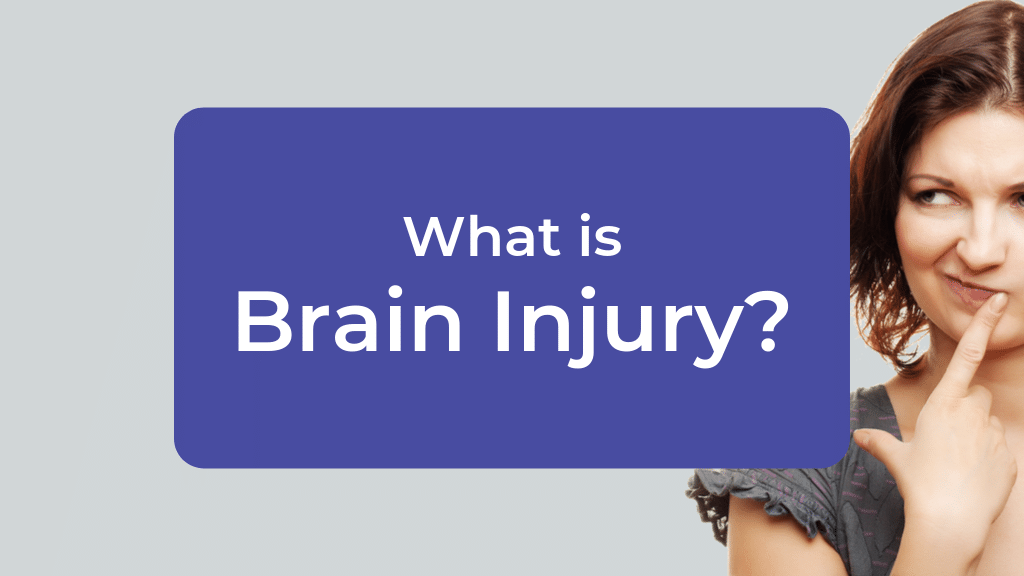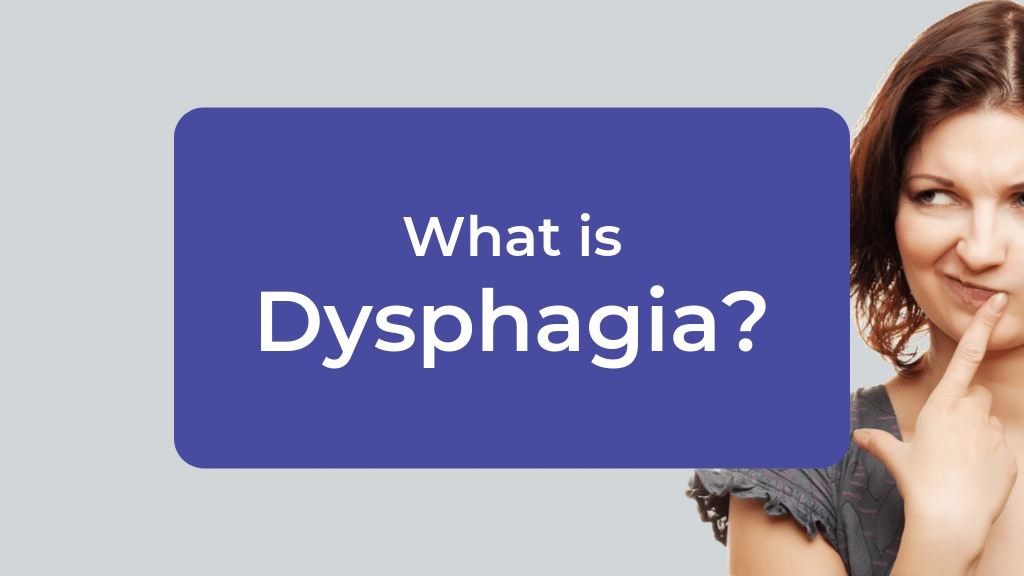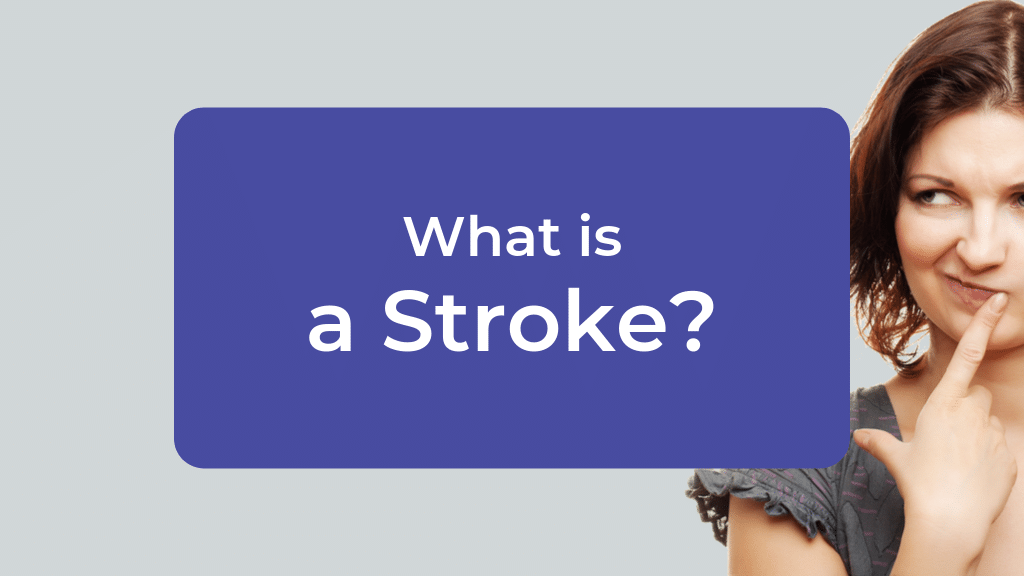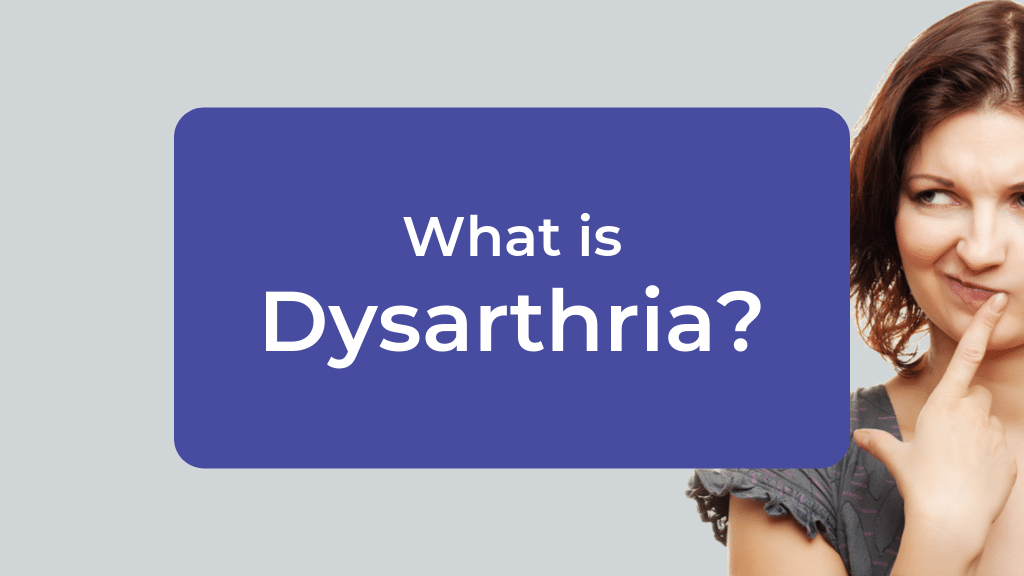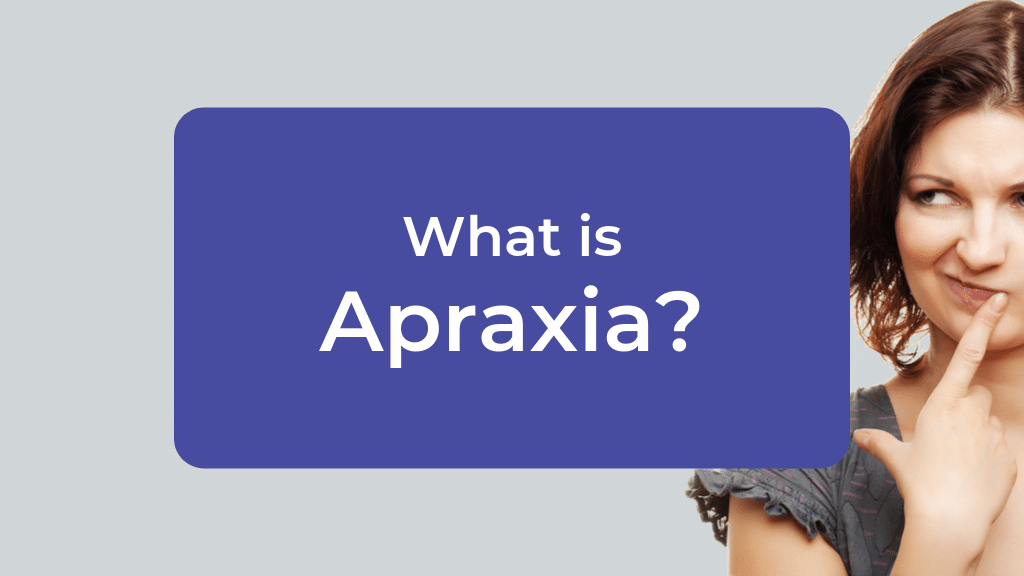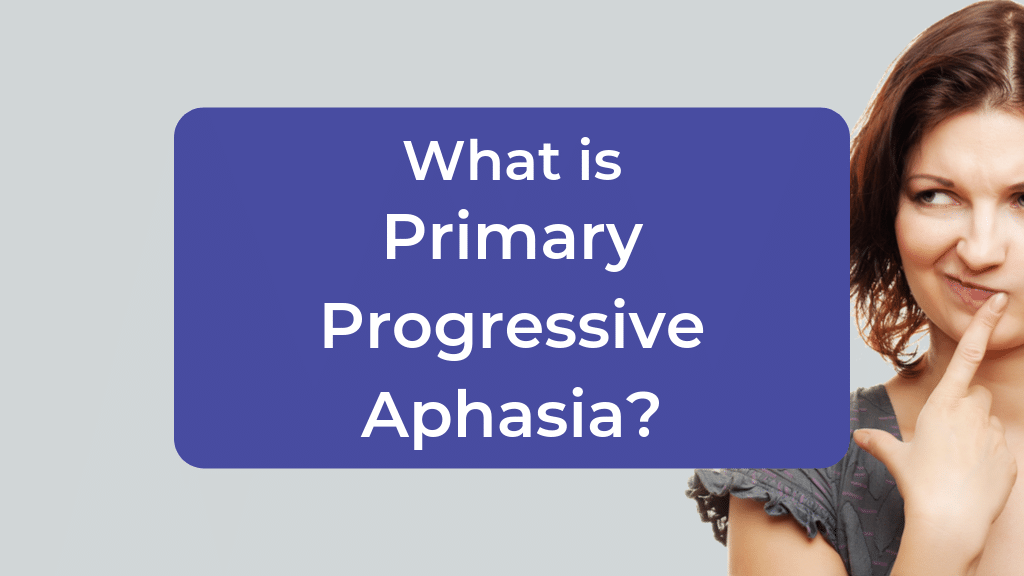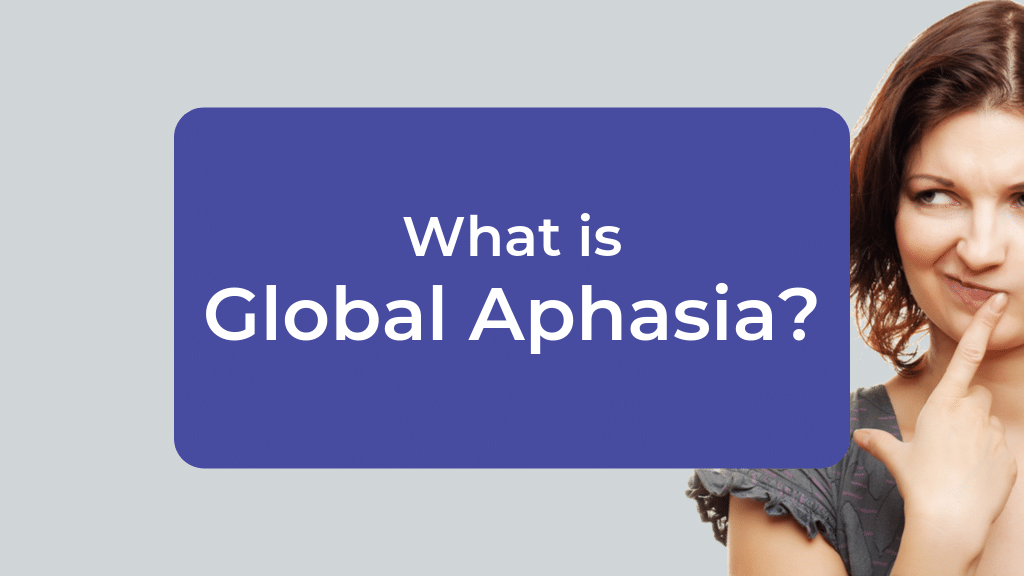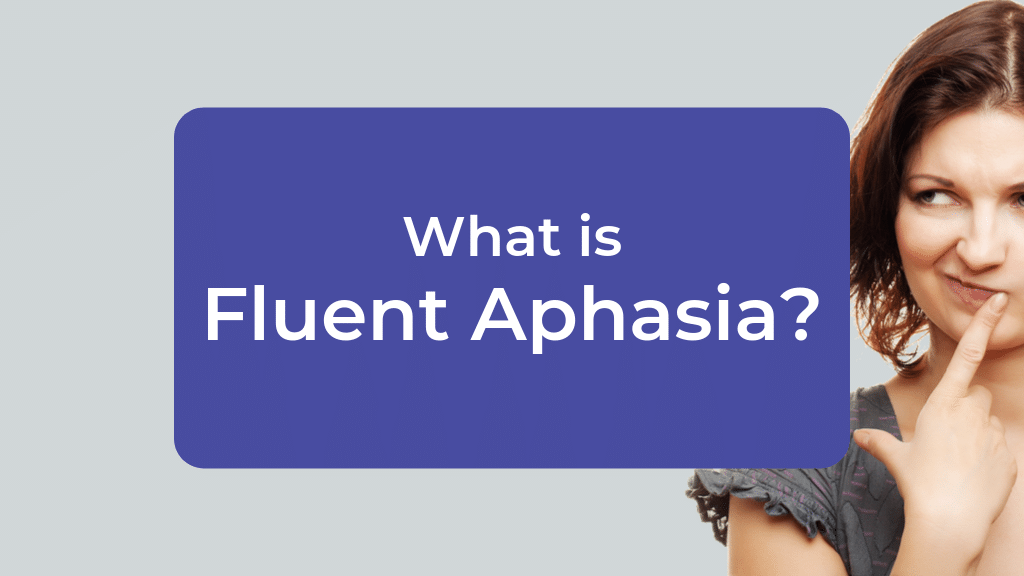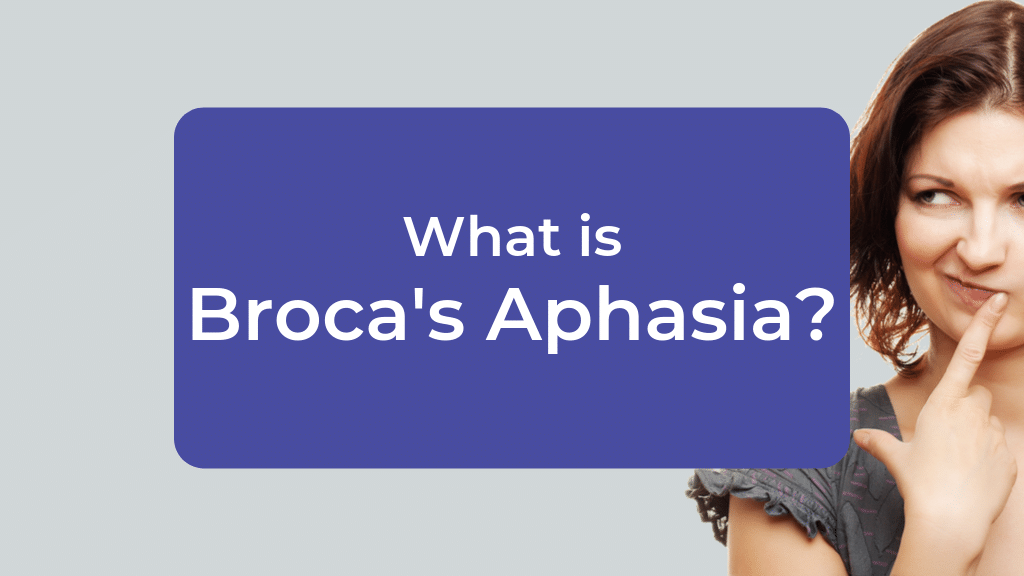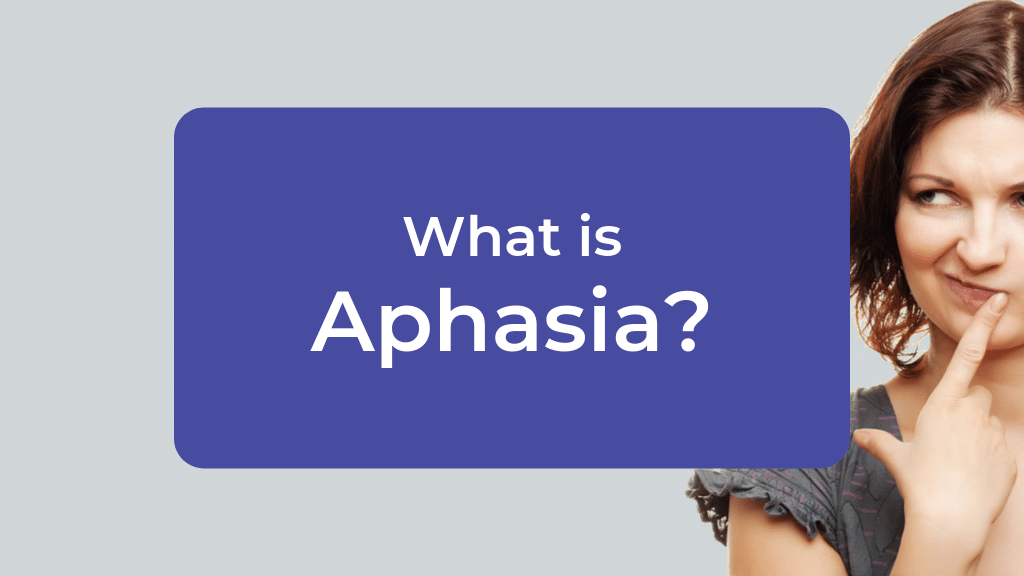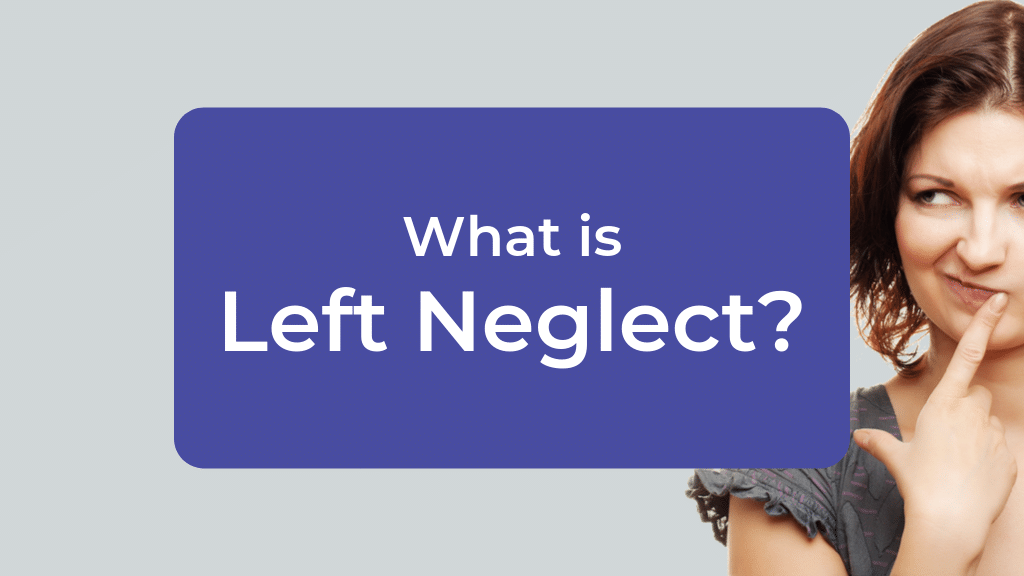What is
a Cognitive-Communication Disorder?
7 min read
Cognitive-communication disorders are problems with communication that have an underlying cause in a cognitive deficit rather than a primary language or speech deficit.
A cognitive-communication disorder results from impaired functioning of one or more cognitive processes, including the following:
- Attention (selective concentration)
- Memory (recall of facts, procedures, and past & future events)
- Perception (interpretation of sensory information)
- Insight & judgment (understanding one’s own limitations & what they mean)
- Organization (arranging ideas in a useful order)
- Orientation (knowing where, when, & who you are, as well as why you’re there)
- Language (words for communication)
- Processing speed (quick thinking & understanding)
- Problem-solving (finding solutions to obstacles)
- Reasoning (logically thinking through situations)
- Executive functioning (making a plan, acting it out, evaluating success, & adjusting)
- Metacognition (thinking about how you think)
These cognitive processes are not isolated abilities. They work together. A problem with one or more cognitive functions can cause difficulty performing activities of daily living safely & efficiently as well as communicating effectively. An evaluation by a speech-language pathologist can determine where impairments exist & how to treat them.
A person with a cognitive-communication disorder may have difficulty paying attention to a conversation, staying on topic, remembering information, responding accurately, understanding jokes or metaphors, or following directions.
Cognitive-communication disorders vary in severity. Someone with a mild deficit may simply have difficulty concentrating in a loud environment, whereas a person with a more severe impairment may be unable to communicate at all.
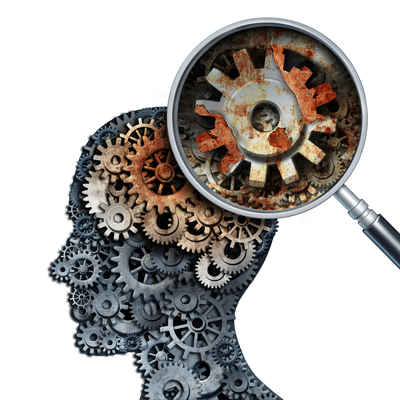
Get the key points in a handout!
Get your free PDF summarizing what a cognitive-communication disorder is, what you might notice, & how you can help. A perfect handout for families.
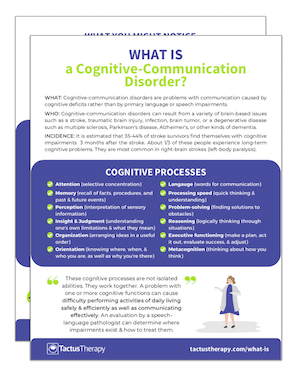
In addition to receiving your free download, you will also be added to our mailing list. You can unsubscribe at any time. Please make sure you read our Privacy Policy and Terms & Conditions.
What Causes Cognitive-Communication Disorders
Since cognitive processes are controlled by many cortical and subcortical structures within the brain, any damage to the brain can cause a cognitive-communication disorder.
Thirty-five to 44 percent of stroke survivors find themselves with cognitive impairments 3 months after their strokes. About a third of these people experience long-term cognitive problems. They are most common after a right hemisphere stroke – one that affects the left side of the body.
A cognitive-communication disorder can also result from a traumatic brain injury (TBI), a brain infection, a brain tumor, or a degenerative disease such as multiple sclerosis, Parkinson’s disease, Alzheimer’s disease, or another form of dementia.
Cognitive-communication disorders can occur alone or in combination with other conditions, such as dysarthria (slurred speech), apraxia (inability to move the face and tongue muscles correctly to form words), or aphasia (impaired language).
How Cognitive-Communication Disorders Are Identified
Anyone who has suffered a brain injury or a stroke should be screened for cognitive and perceptual disorders. Cognitive-communication disorders can be identified using the Cognitive-Communication Checklist for Acquired Brain Injury (CCCABI), a free online screening tool. Once cognitive-communication disorders are identified, a referral should be made to the speech-language pathologist for a full assessment.
An assessment is likely to include several tools (both formal and informal), including some of the following:
- Montreal Cognitive Assessment (MoCA)
- Scales of Cognitive Ability for Traumatic Brain Injury (SCATBI)
- Cognitive Linguistic Quick Test (CLQT)
- Functional Assessment of Verbal Reasoning and Executive Strategies (FAVRES)
- Assessment of Language-Related Functional Activities (ALFA)
After assessing the client, the speech-language pathologist prepares a personalized treatment plan, targeting goals to meet the client’s functional needs.
If a person can’t speak, it’s important to determine whether the problem is aphasia or a cognitive-communication deficit. Most standardized tests for cognitive functioning use language. People with aphasia, however, have trouble generating and/or understanding speech. They should therefore be assessed with nonverbal measures (both formal and informal), which may include the following:
- Raven’s Progressive Matrices (RPM)
- Cognitive Linguistic Quick Test (CLQT)
- Test of Nonverbal Intelligence (TONI)
- Butt Nonverbal Reasoning Test (BNVR)
People with aphasia are likely to have difficulty with cognitive processes such as attention, short-term memory, working memory, declarative memory, and executive functioning.
What You Might Notice
People with cognitive-communication disorders often have trouble participating in conversations. They may have difficulty understanding what is said, or be unable to respond in a timely fashion. They may have trouble speaking clearly, or conveying their thoughts efficiently and effectively.
Someone with a cognitive-communication disorder may have trouble reasoning and making decisions while communicating. They may have trouble remembering their conversations and experiences.
People with cognitive-communication disorders sometimes have trouble responding in an appropriate or a socially acceptable manner. They often lack filters, expressing their sexual thoughts and speaking without regard for the feelings of others.
In addition to conversational problems, those with cognitive-communication disorders may find it hard to understand instructions, presentations, movies, television, and radio.
Some have trouble reading and/or writing. This can make it hard for them to complete job tasks and schoolwork, participate in their communities, or simply enjoy books, magazines, newspapers, and online media.
Treating Cognitive-Communication Disorders
People with cognitive-communication disorders often benefit from assessment and personalized treatment by a speech-language pathologist, since each case is unique.
Therapy may include a combination of techniques. The three main goals are to restore function, compensate for deficits, and educate the client and family about the disorder and its treatment.
Remediate
Techniques for restoring the client’s previous level of functioning include the following:
- Using exercises or software to retrain discrete cognitive processes such as attention
- Using internal memory strategies or spaced retrieval training to solidify memories
- Completing practice tasks that are difficult, while offering support, to build independence
Compensate
Techniques designed to compensate for the client’s cognitive-communication deficits include:
- Using external strategies for improving memory (e.g. memory books, smartphone apps)
- Teaching strategies for approaching problems to strengthen executive functioning (e.g. “plan, do, review”)
- Establishing routines and schedules
Educate
Techniques for educating the client and his or her family include the following:
- Using video or audio recordings to make the client and his or her family aware of what the deficit looks and sounds like
- Discussing the assessment results with the client and his or her family
- Problem-solving around errors as they occur
- Providing group therapy for the client and his or her family, including a discussion of the client’s deficits and group practice of the treatment strategies
- Teaching family members and caregivers to recognize and help the client overcome his or her deficits
If You Have a Cognitive-Communication Disorder
There are many things you can do to help yourself if you are a brain injury survivor or find that your mental skills are not as sharp as they used to be. You may need to try a few things before finding the tips and tricks that will work best for you, since everyone is different. Try some of these things:
- If you have memory problems, be sure to write down all your appointments, lists, and important notes in a calendar or digital organizer and always keep it in the same place.
- If you have attention problems, set yourself up for success by limiting background noise or keep a consistent background noise if you find it helps you to focus.
- If you have problems with executive functioning, make a detailed plan, use checklists, and check-in along the way to make sure you’re on track with timing.
- Talk with other people who have similar challenges to learn from their experience. If you have a mild brain injury (the kind that doesn’t feel mild at all, but the doctors keep telling you it is), you may enjoy reading the book Over My Head by Claudia Osborn.
- Check out this helpful website with information about right hemisphere disorder, or cognitive-communication issues after a right-sided stroke.
6 Ways to Help Someone with a Cognitive-Communication Disorder
A person with a cognitive-communication deficit can benefit a great deal from therapy. Meanwhile, you can help the person communicate by taking a few simple actions:
- Allow the person extra time to process what you’ve said. Try waiting for up to 90 seconds before repeating yourself.
- Provide information in short chunks. If you’re giving directions, break them down into small steps. Instead of saying, “Brush your teeth,” try saying, “Go to the sink . . . Take out your toothbrush . . . Put toothpaste on the toothbrush . . . ” and so on.
- If the person has left neglect, provide a challenge by standing to the person’s left. For an important conversation, however, sit on the person’s right side.
- Write down key instructions and information, or encourage the person to write it down themselves.
- Verify any important information the person gives you with a third party, to be sure it’s reliable. People with memory deficits or insight problems may not be accurate communicators, even if their speech sounds good.
- Speak simply. Don’t talk too loudly, though, and don’t talk down to the person.
Download a Printable Handout for Families
Get your free PDF summary of What is a Cognitive-Communication Disorder.

In addition to receiving your free download, you will also be added to our mailing list. You can unsubscribe at any time. Please make sure you read our Privacy Policy and Terms & Conditions.
